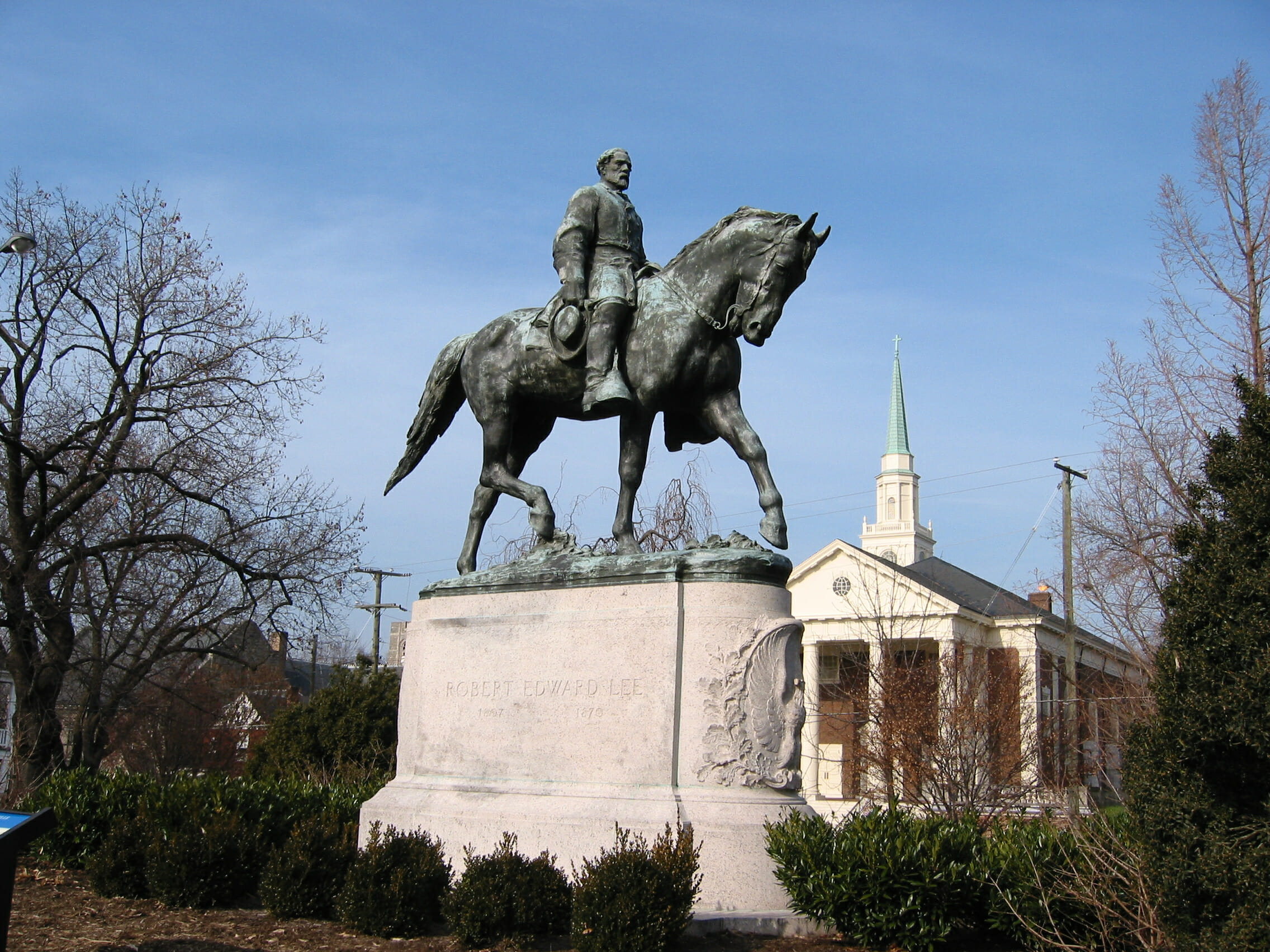The statue at the center of the controversy. (Courtesy/ Wikimedia Commons.)
A century and a half after Civil War’s end, parts of the U.S. are still stuck in the 1860s.
Statues of Generals Robert E. Lee and Stonewall Jackson litter the South, and an attempt to remove similar symbols of the Confederacy sparked an unforeseen outcry in Charlottesville, Virginia, at a rally organized by white nationalists that erupted on August 12. Amid slurs and roughhousing, the charged demonstration culminated in a car being driven through a crowd, injuring 19 and killing one woman. Despite these events happening over a month ago, hate speech is still a headlining issue.
The violence is horrifying in itself, but the reasons for the protests are what generated the most discussion. Principally, the rally was held to protest the removal of a statue of General Lee, arguably the most well-known Confederate general.
To us, monuments, particularly those of people, mean “honor.” Erecting a monument of someone implies that we honor their actions, their beliefs, and most of all, what they stood for. Monuments immortalize a person, and looking at that figure should remind us of their accomplishments, and why we admire them for their work.
So taking this into consideration, we asked ourselves: do we honor the people who were figureheads for the exploitation of an entire race of people? The unanimous answer turned out to be no. Furthermore, we don’t believe the U.S. should either.
Leaving these statues intact sends the message that we still condone the sentiments of slavery and racism that permeated the country in the 19th century. Looking at these statues reminds us of a time when freedom and equality were reserved for a select group, while we subjugated the rest. This is not the America we claim to be, and it certainly shouldn’t be the America we want to be.
One of the main arguments in favor of the statues is that by taking them down, we erase part of our history. People fear the sacrifices of Confederate soldiers will be forgotten: both sides of the war deserve to be remembered. These concerns, however, have feasible solutions. Instead of destroying the statues, we can place them in museums, where the focus turns from honor to education. The Confederacy will not be forgotten, but it will be remembered without the romantics of “The Lost Cause” and instead with the accuracy our country needs.
Before recent events, the K.K.K. and Nazism were nothing but topics in history books to students in the Upper School. They are now part of our scary new reality, not sparked by a sudden event, but rather a gradual movement beginning with an election campaign.
There is a popular argument that defends the commitment to President Trump despite his recurrent, offensive misdemeanors. Supporters claim that Trump’s conduct does not reflect racism and hatred on their own character. These “MAGA” enthusiasts or even Clinton-haters fail to understand that this argument does not justify anything.
The current Leader of the Free World has used an underlying tone throughout his rise to power that condones bigotry. There has been a comeback of vocal hate groups, as seen with David Duke’s open support for the President and beastly outpourings like Charlottesville. Large outbursts of inexcusable character have occurred, but a return of active clashes mimicking the Civil Rights Moments are a consequence of consistent subtleties in speech and message.
The hatred is closer than we may think: just last year, New Albany High School was vandalized right before Peace Week. Tennis courts and equipment sheds were covered in spray-painted swastikas, racial slurs, and the word “Trump.”
That case is extreme, but comparable rhetoric has infiltrated our community in subtle ways. Junior Tara Seri spoke earlier this year about being called “Dot” and the nicknames her classmates use that are often rooted in racism. Members of the boys cross country team, while running shirtless, have heard the word “faggot,” not from our community but yelled from passing cars, both in Upper Arlington and Westerville. But such epithets and the like still occur on our own campus as LGBTQ students have reported being called similar slurs by their peers.
Although we often have the privilege of not getting political, we are not exempt from the discussions about hate speech. It’s clear that our community is not as accepting as we would like to believe; intolerance never really went away, but we’re seeing more of it now that the President is not condemning dramatic incidents of hate.
It’s important to remember that even if you’re not saying anything or taking a stance on an issue, you’re still making a statement. Just like the President, you’re condoning the clearly flawed status quo.
By leaving controversial statues and refusing to condemn violence, a statement is still being made: our country is okay with its hateful climate.








